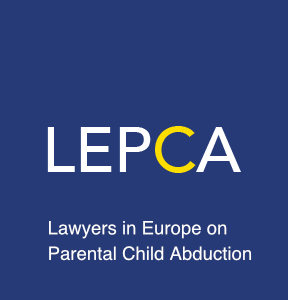In the case of spouses, everything acquired by the spouses jointly during the marriage or by one of them during the marriage is a part of the community property by operation of law. This includes income of the husband and wife from employment (wages, salary), income of the husband and wife from business, income from rent (note, this also applies in the case of renting an item owned by only one of the spouses), car, house, flat, land, rights to a cooperative flat (more precisely, a membership share in a housing cooperative, the right to rent a cooperative flat), shares in a commercial company, securities, investment gold, cryptocurrencies, but also mortgage debt, consumer credit or any other obligation incurred by the spouses during the marriage. These examples represent the most common items that constitute community property. The community property, on the other hand does not include the items that one of the spouses acquired during the marriage by inheritance or as a gift or items that he or she obtained for an item that was his or her sole property
When settling the community property, it is useful to remember whether you entered the marriage with any assets that you already had when you were single. For example, if you entered the marriage with your own financial savings which you invested in the purchase of a joint property after your marriage. Or whether you had your own flat before the marriage (beware of cooperative flats, the situation is particularly specific here) which you sold during the marriage and then used the money from the sale to finance part of the purchase price of a larger flat you bought together as husband and wife. These practical examples are so-called contributions to the community property and you are entitled to claim the reimbursement of these contributions in the course of settlement of your community property.
When settling the community property, the spouses can also deal with the opposite situation - the return to the community property of items that has been invested in an asset that belongs to only one spouse. A typical example is the financing of the renovation of a house or apartment in which both spouses live but which is owned by only one spouse. This is a so-called investment from the community property in a property owned by one spouse and in the course of settlement of your community property you are entitled to claim the return to the community property of the joint funds used for the renovation of a property which was not part of the community property and which is owned by only one spouse.
It is important to keep in mind the non-negotiable time limit set by law for settlement of the community property: the community property must be settled within 3 years of the final judgment of dissolution of marriage. To "settle the community property" means to conclude a written agreement on the settlement within this period (and to specify in the agreement all the items that are subject to settlement) or to bring an action before the court for the settlement of the dissolved community property (and to specify in the action all the items that are subject to settlement) within this period. If nothing happens within 3 years of the final judgment of dissolution of marriage (no settlement agreement is concluded and no court proceedings for settlement are initiated), the legal fiction of property settlement arises. This establishes that the shares of both spouses in the common property (including debts) are equal and that the ordinary movable property used by one spouse is his/her sole property. The same regime then applies to items of the community property which were not included in the settlement agreement or which were not claimed in the action for the settlement of the dissolved community property. Attention - it is only possible to claim the return of contributions and investments within the above mentioned time limit for the settlement of the community property, otherwise the right to their return is extinguished once and for all.
The unmarried partners, have no community property and if the unmarried couple acquired any property jointly, they have it in the common property. Unless the unmarried partners expressly agree otherwise, the shares of both partners in the common property are equal.
Special attention must be paid to investments in property settlement made by the unmarried partners in the joint property (renovation, extension, conversion, etc.). In most cases the partners do not participate in the investment in the property in equal shares (although the property is often registered in the Land Registry as owned by them in id. 1/2) and the financial investment of one partner in the joint property significantly exceeds the financial investment of the other partner in the joint property. In this context, it should be noted that the time limit for the property settlement of these investments does not start to run when the unmarried couple separates, nor does it start to run when the agreement on the dissolution and settlement of the joint ownership is concluded. The time-limit for settlement of each individual investment made in the joint property runs from the date on which the investment in question was made (with certain exceptions where the time-limit starts to run later). The length of the time limit for the settlement of investments made varies depending on whether the investment in the joint property was made with the consent of the other partner or against the will of the other partner. The issues involved are quite complex and it is therefore important not to underestimate the situation and to seek early legal advice from a specialist lawyer.
If spouses or unmarried partners have community property in different countries, the situation is very specific.
If the spouses or unmarried partners agree on the form of their property settlement, the property settlement can be a relatively quick matter, settled in a matter of weeks. If an agreement between spouses or unmarried partners on the property settlement is not possible, it is necessary to initiate court proceedings for the settlement of the dissolved community property or to initiate court proceedings for the dissolution and settlement of the community property and to resolve the property issues in this way. Even in the course of court proceedings, the parties may conclude an agreement and submit it to the court with a proposal for approval of the agreement in the form of a court settlement.



